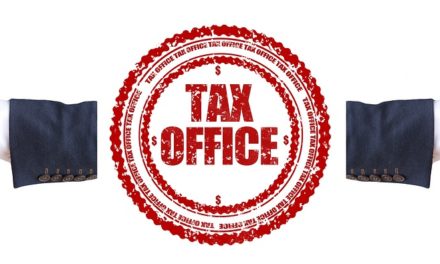CFC Rules Can Kill an Offshore Structure if Not Planned Carefully
Countries with no CFC rules can be essential to your offshore planning. When looking for a country of residence, a country that doesn’t have CFC rules can be attractive.
There’s a common misconception surrounding offshore companies. Many people believe that it’s possible to buy an offshore company and funnel profits into it while living in a high-tax country. At one time, that was possible, and many enterprising people did just that. However, governments soon realized that their revenues were being eroded and introduced Controlled Foreign Corporation (CFC) Rules.
The US was the first country to introduce CFC rules back in 1960. It was followed by Germany in 1973. Nowadays, almost every high-tax country has CFC rules to prevent the erosion of their tax bases by people using offshore companies in low-tax jurisdictions to avoid tax.
How do Controlled Foreign Corporation (CFC) Rules Work?
Countries that don’t have CFC rules are more common than you might imagine. CFC rules seek to tax income in offshore companies as if it were domestic income. These rules are put in place to ensure that it’s difficult for people and corporations to set up companies in low-tax countries to avoid tax in high-tax regions.
CFC rules don’t apply only to distributed profits. They apply to earnings retained in the overseas entity. It’s not possible to avoid CFC rules by keeping undistributed profits in the offshore company.
All countries with CFC rules have different definitions of a controlled foreign corporation. The UK defines a foreign corporation as one that’s managed from the UK. The US defines it as a corporation where US residents control more than 50% of the shares. Germany and France base it on how much less tax the company is paying in the overseas country than it would be paying in those countries.
CFC rules are complex. It’s the one thing that trips many people up when they incorporate offshore but remain resident in a high-tax country. It’s not possible to legally reduce or avoid taxes in countries like the US or UK simply by incorporating in the BVI or Panama. Many other steps are necessary to achieve this without running into difficulties.
Fortunately, the majority of countries in the world do not have CFC rules. Here are eight countries that don’t have CFC rules:
These Countries Will Not Tax Income in Offshore Companies
Switzerland
Switzerland does not have any CFC rules. Any income accrued in offshore companies controlled by Swiss residents will not be subject to Swiss taxes. Switzerland can be a good base to control a tax-free network of companies. It’s also possible to have Swiss-based nominees manage your offshore company.
Panama
Panama also has no CFC rules. Residents of Panama can manage corporations in any jurisdiction and not be subject to local taxes. As a territorial tax country, any income from overseas is not taxable in Panama.
Costa Rica
Costa Rica is another territorial tax country with no CFC rules. Any income earned in overseas companies controlled by residents of Costa Rica is not subject to tax.
Thailand
Thailand doesn’t have CFC rules. Thailand has the excellent Thai elite visa that allows anyone to become a tax-free resident of the Asian country. Any income accrued in overseas companies will be free of taxes for residents of Thailand.
Monaco
While Monaco is a traditional tax haven for individuals, this is not the case for Monaco companies. Monaco companies are taxed on profits they make outside Monaco. This is to avoid Monaco companies doing business in France and having an advantage over their highly taxed French counterparts.
But Monaco has no CFC rules. Monaco residents frequently use offshore companies and trusts. Undistributed income from overseas companies is not taxed. As a zero-tax haven, any dividends paid to individuals are tax-free.
Liechtenstein
Liechtenstein is one of Europe’s more tax-friendly countries. It doesn’t have CFC rules. Lichtenstein residents are taxed on dividends received from overseas companies. But if the profits remain in the legal entity, there’s no tax due on profits made by the offshore entities. Lichtenstein can be an excellent place from which to manage overseas companies and foundations.
Singapore
Singapore is fast becoming a global wealth haven. Residents of Singapore will not face any inquisitions from the tax authorities there about overseas companies they control. Singapore does not have controlled foreign corporation rules.
Jersey
The Channel Islands are the answer if you want to stay in the British Isles without paying high taxes. Jersey has lower tax rates than the rest of the UK. But best of all, it has no CFC rules. Residents of Jersey can accrue unlimited profits in offshore companies and not be taxed in Jersey.
Conclusion
The reality is that CFC rules exist primarily in high-tax countries. The majority of countries in the world still don’t have CFC rules. If you want to reduce your taxes legally, it’s important to understand this area. Detailed planning is essential if you intend to stay in a high-tax country and use an offshore structure to lower your taxes. Investing in the right advice and the best structure will avoid future problems and potentially massive tax exposure.
But the best strategy is always to locate yourself in a country without CFC rules or other rules that threaten your liberty.
What is meant by CFC rules?
Controlled Foreign Corporation rules tax people using offshore companies in low-tax jurisdictions. Many people are not aware of CFC rules and get caught out.
How can CFC rules be avoided?
CFC rules can be avoided by living in a country with no CFC rules. It’s also possible to develop offshore structures to avoid CFC rules but this takes considerable expertise and planning.
What is US CFC rules tax?
The US CFC rules tax are for overseas companies in low tax jurisdictions where US shareholders own more than 50% of the shares.
What are CFC exemptions?
There are many CFC exemptions. Rules differ in each jurisdiction.
What are CFC rules in Europe?
Every EU country has CFC rules. Switzerland is the most significant country in Europe that doesn’t have Controlled Foreign Corporation rules.











